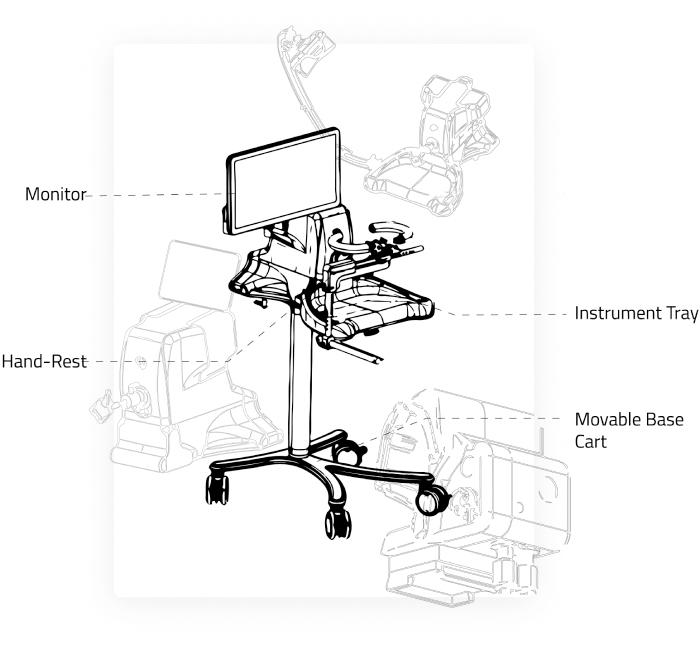
Realistic Patient-Specific
Surgical Simulator (a signature product of SurgeonsLab AG) is a dedicated stand-alone autonomous Neurosurgical simulator that allows Neurosurgeons to upskill themselves by training in a realistic environment without involving patients and animals.


Real haptics

Tactile feedback
Models are accurately replicated from actual patients
radiology images
An unparalleled training experience (Physical Flow models + Virtual Simulation Exercises Integrated)

A precise multimodal position sensing system allows surgeons to train with authentic surgical instruments in simulations, free from cables and computer peripherals.
The system automatically detects and enables the interchangeability of instruments like micro scissors, dissectors, and forceps throughout the simulation.




Replicates complete microsurgical clinical process Intelligent consumable and Disposable control.

Electronic Information for Use (eIFU) provides comprehensive, digital product information, ensuring safe and effective use of the Surgery Simulator. Access detailed instructions, specifications, and safety guidelines

SurgeonsLab's revolutionary software offers tailored virtual patients, real-time analytics, and automated skill tracking for unparalleled surgical training precision. Immerse yourself in a 4D learning environment mirroring the operating room.

Portable and can be placed anywhere with power and internet source.
Receive tailored 3D-printed complete training model with Mixed-reality training preparation on the simulator.

|
|
|
|
|
|
|---|---|---|---|---|

|
Limited |

|

|
|

|
Limited |

|

|
|
 |
 |
Limited |  |
|
 |
Limited | Limited |  |
|
| Limited | Limited |  |
 |
|
| Limited | Limited |  |
 |
|
 |
 |
 |
 |
|
 |
 |
Limited |  |
|
 |
 |
 |
 |
|
| Limited |  |
Limited |  |
|
 |
 |
 |
 |
| |

|
Limited |

|

|
|---|---|---|---|---|
| |

|
Limited | Limited |

|
 |
 |
 |
 |
|
 |
 |
 |
 |
For custom engineering solutions and other inquiries

These are the most commonly asked questions. can't find what you are looking for use our chatbot.